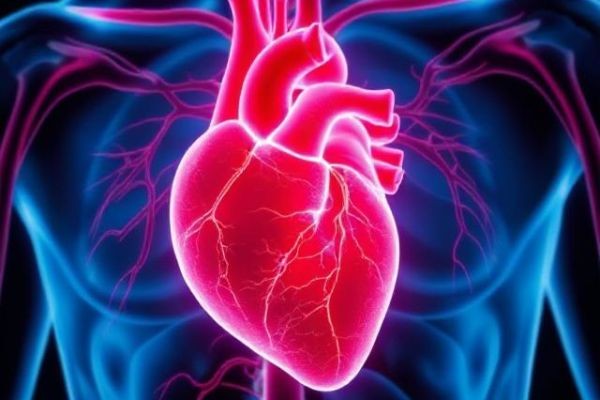Here are seven key signs that your heart arteries may be blocked:
1. Chest Discomfort or Angina
One of the most common early signs of blocked arteries is chest pain or discomfort, known as angina. This sensation can feel like:
- A tightness or pressure in the chest
- A burning sensation similar to heartburn
- Pain that radiates to the arms, shoulders, or jaw
Angina often occurs during physical exertion, stress, or after eating heavy meals and typically subsides with rest. However, if the pain becomes persistent, severe, or occurs even at rest, it could indicate a serious blockage requiring immediate medical attention.
2. Shortness of Breath
When your arteries are blocked, your heart struggles to pump blood efficiently, reducing the oxygen supply to your body. This can lead to shortness of breath, even with mild activity. You may notice:
- Difficulty catching your breath after climbing stairs or walking short distances
- A feeling of breathlessness while lying down
- A sense of suffocation, especially at night
Shortness of breath can be an early warning sign of heart disease, particularly if it occurs without an obvious cause like intense physical activity.
3. Fatigue and Weakness
Feeling unusually tired or weak, especially after minor activities, can be a sign that your heart isn't pumping enough blood to meet your body's demands. You might experience:
- Extreme exhaustion despite getting enough sleep
- Difficulty performing daily tasks like carrying groceries or climbing stairs
- A general feeling of sluggishness or weakness
Persistent fatigue, especially when accompanied by other symptoms like dizziness or chest discomfort, could be a sign of reduced blood flow due to narrowing arteries.
4. Pain in the Arms, Neck, Jaw, or Back
Not all heart-related pain happens in the chest. In some cases, blocked arteries can cause referred pain in areas such as:
- The left arm, which is common in men
- The jaw or neck, often experienced by women
- The upper back or shoulder blades
This pain may occur suddenly or gradually and often worsens with exertion. If the discomfort persists or appears without a clear cause, it may be a sign of a heart problem requiring medical evaluation.
5. Erectile Dysfunction (ED) in Men
For men, ongoing difficulties in achieving or maintaining an erection can be an early sign of poor circulation due to arterial blockages. This occurs because:
- The same plaque buildup that affects the heart arteries can also restrict blood flow to the penis
- Erectile dysfunction can develop years before other heart-related symptoms appear
- Studies suggest that men with ED are at higher risk of developing cardiovascular disease
If you experience persistent erectile dysfunction, it is important to consider heart health as a potential underlying cause and seek medical advice.
6. Dizziness or Lightheadedness
Frequent dizziness, lightheadedness, or fainting spells can indicate reduced blood flow to the brain due to blocked arteries. You might notice:
- Feeling dizzy when standing up quickly
- Sudden episodes of lightheadedness after mild exertion
- A sensation of losing balance or nearly fainting
While occasional dizziness can result from dehydration or low blood sugar, persistent episodes—especially if accompanied by other heart-related symptoms—should not be ignored.
7. Swelling in the Legs, Ankles, or Feet
When the heart is unable to pump blood efficiently due to blocked arteries, fluid can accumulate in the lower body, leading to swelling (edema). Symptoms may include:
- Puffy or swollen feet, ankles, or legs
- Skin that appears tight, stretched, or shiny
- Indentations (pitting edema) when pressing on the swollen area
Swelling in the lower extremities may also be a sign of heart failure or poor circulation, requiring medical evaluation.
When to Seek Medical Attention
If you experience any of the above symptoms—especially chest pain, shortness of breath, dizziness, or fatigue—it’s crucial to consult a doctor as soon as possible. Early diagnosis and treatment can help prevent serious heart complications.
How to Protect Your Heart
To reduce your risk of artery blockages and heart disease, consider:
✅ Maintaining a healthy diet rich in fruits, vegetables, and whole grains
✅ Exercising regularly to improve circulation
✅ Managing stress through relaxation techniques and mindfulness
✅ Avoiding smoking and limiting alcohol consumption
✅ Getting regular health checkups to monitor cholesterol, blood pressure, and heart function
Taking early action can significantly improve heart health and prevent severe complications. If you're concerned about any of these symptoms, don't wait—seek medical advice today.








